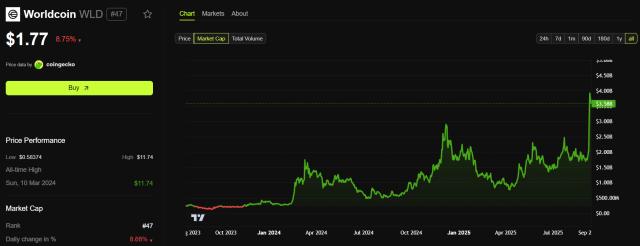By Delphi Digital
The Internet's trust crisis
There's a fundamental problem with the way the internet works: a lack of trust. Today, our digital lives are fragmented across disparate platforms, each holding fragments of our identities. For example, Google determines what you can discover; Reddit filters what you see; and Amazon controls what you can buy. These giants exist as "walled gardens," leveraging their own data and algorithmic biases to trap users in echo chambers. Worse still, with the rise of AI, people will increasingly rely on single prompts for the so-called "truth." It's projected that by 2028, AI-driven search will completely replace traditional search, and "truth" will be determined by a handful of models, controlled by algorithms and centralized companies.
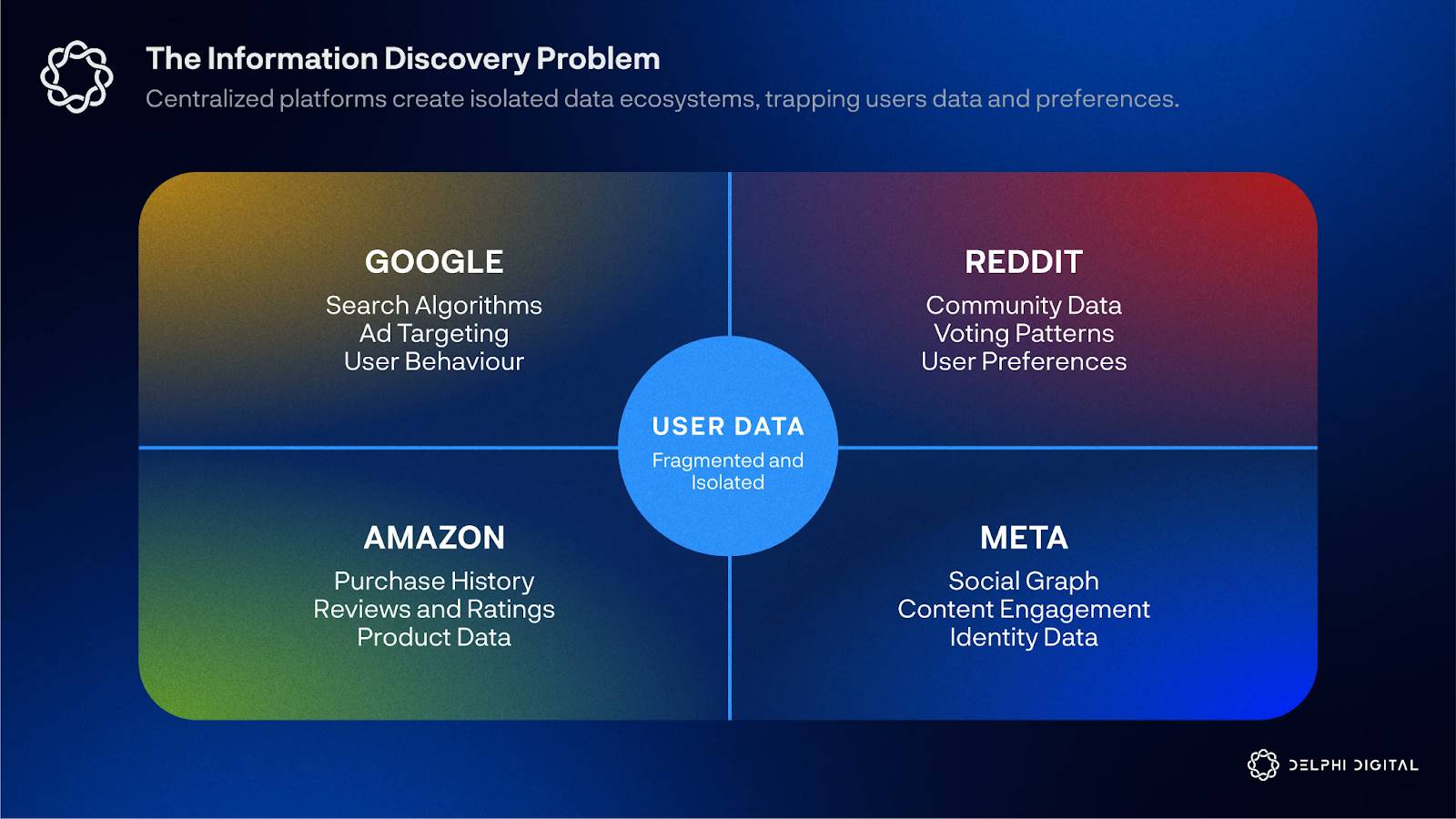
This state of affairs means that our worldview will be shaped by corporate interests. Ironically, while we have made tremendous progress in decentralized trading technology (such as DeFi protocols and NFT markets), we have neglected how to decentralize the discovery and consumption of information.
Intuition Protocol's Solution
To address this issue, Intuition Protocol proposes a new solution. It builds a decentralized discovery method, transforms information into an asset class, and forms an open, composable trust layer through economic incentives.
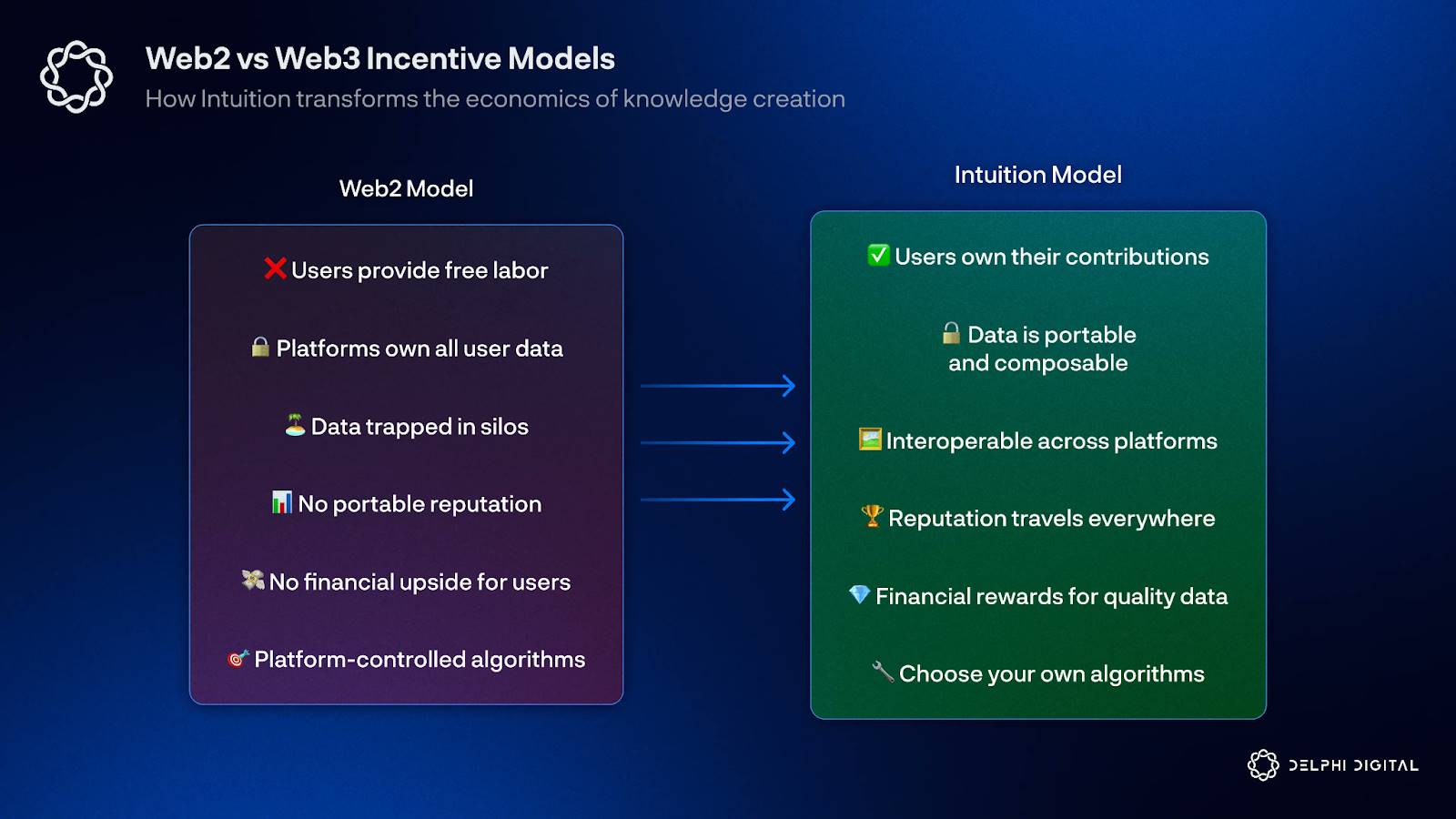
The Evolution of Information Markets: Prediction Markets and Intuition Protocol
Prediction markets, such as Polymarket, demonstrate the potential of information markets by using economic incentives to align people toward a single, binary "truth." However, the real world is complex and diverse, and different communities have varying understandings of "truth." The Intuition Protocol addresses the limitations of prediction markets by introducing a multi-dimensional representational approach. Users can not only signal their trust in information but also annotate its relevance and context. Compared to the simple binary choices of prediction markets, the Intuition Protocol allows multiple perspectives to coexist and be rewarded.
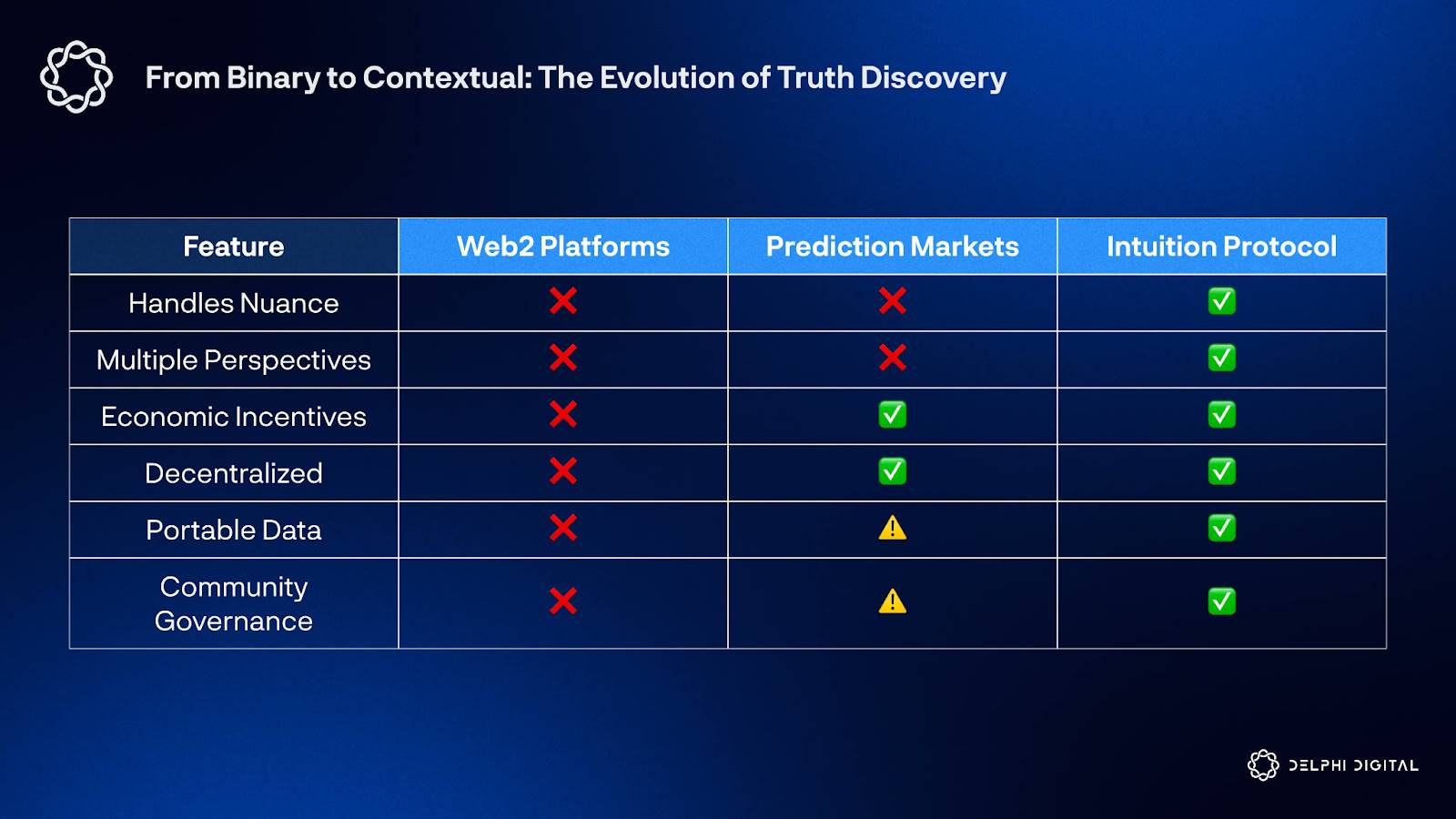
Core technologies: Atoms and Triples
Intuition Protocol's technical framework is based on two core concepts: Atoms and Triples.
Atoms: Atoms are the most fundamental unit of knowledge, representing unique decentralized identifiers (DIDs). They can be a word, a concept, or a complex piece of information. For example, Ethereum's single identifier will be determined by the market, ensuring consistent and relevant data globally. Users can signal their support for a particular Atom, forming a decentralized "Token Curated Graph."
Triples: Triples define relationships between atoms, using a subject-verb-object semantic structure. For example, [The New York Times] [is] [a reliable news source]. Users signal their support or opposition to Triples, forming an economically driven verification system.
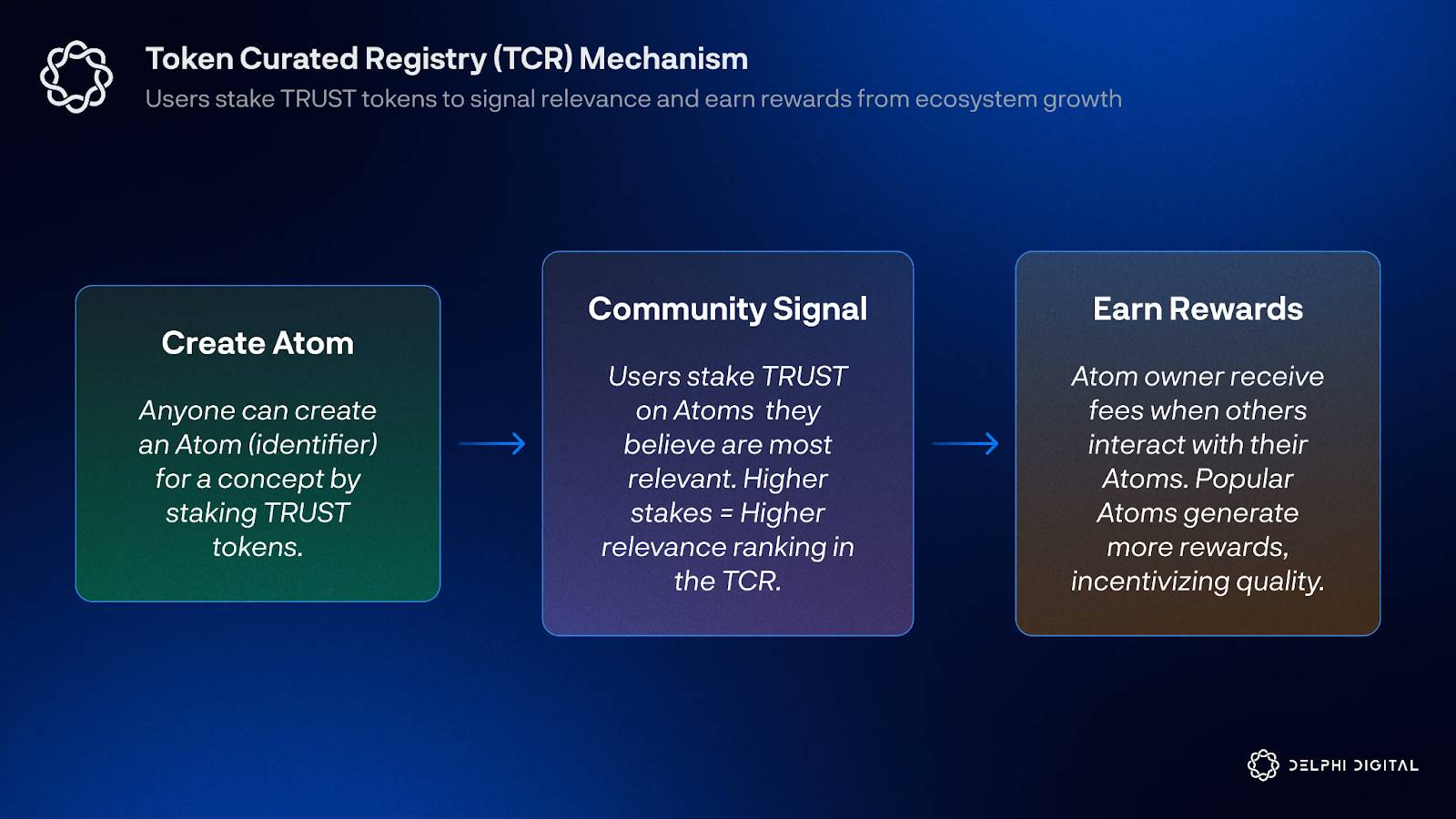
Signaling Economy and Incentive Mechanisms
Intuition Protocol uses a signaling economy to rank and verify information. Users stake their native token, TRUST, to express their support for information in Atoms or Triples. TRUST not only measures the relevance of information but also verifies its authenticity. Through this economic incentive mechanism, users contribute to the quality and credibility of information and earn rewards. This design prevents spam while encouraging the production of high-quality data.
Application scenarios and user experience
At the application layer, ordinary users don't need to understand the complex technology of Atoms or Triples, but instead interact with the protocol through intuitive applications. For example, an application similar to Reddit can display community signals about information, or an AI assistant can provide information based on an open and verifiable knowledge graph. For developers, the Intuition Protocol provides a shared structured knowledge graph, reducing development costs and enabling faster innovation. For users, their preferences, trust circles, and reputations can be seamlessly transferred with applications, truly realizing data sovereignty.
The core function of TRUST token
The TRUST token is the core powerhouse of the Intuition Protocol. It not only charges fees for network interactions but also serves as an economic signal, helping the community reach consensus. Through the TRUST token, users can endorse information, and developers can profit from the token's appreciation, thereby forming a sustainable ecosystem.
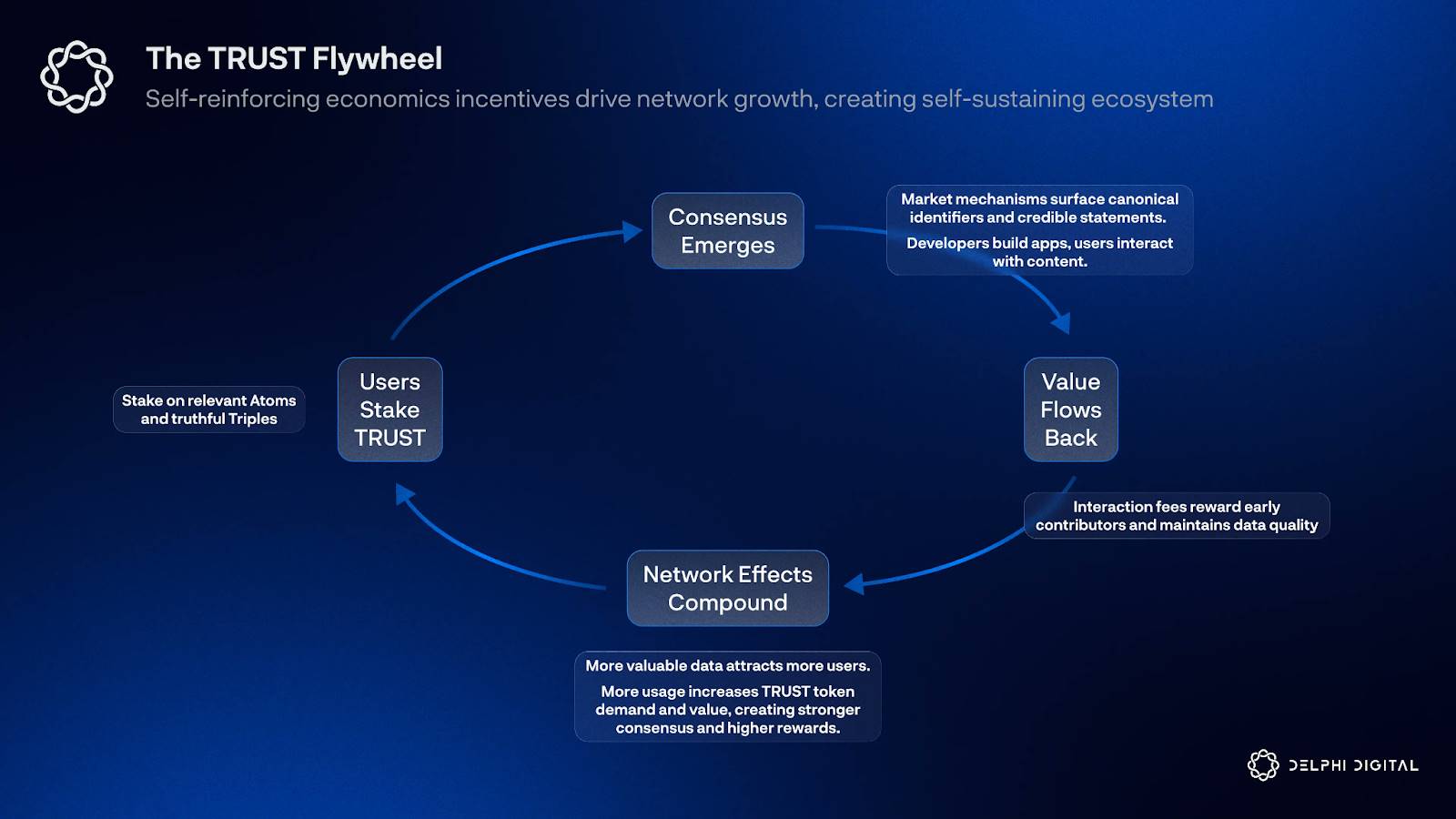
The strategic significance of the AI era
With the rise of AI-driven search, the centralization of information is a growing problem. Intuition Protocol offers a solution by building an open and verifiable data foundation. AI systems can leverage structured data in atoms and triples to provide users with answers with context and credibility, rather than relying on a single black-box model.
Preliminary results and future plans
Intuition Protocol's beta phase has yielded significant results: over 244,000 users participated, completing 5.3 million transactions, 5.1 million of which were data verifications. These figures demonstrate that user demand for a decentralized information marketplace is genuine. Next, the team will complete final preparations for mainnet, including security audits and data migration, to ensure system stability and scalability.
For the past decade, we've focused on building trustless cryptography, enabling the transfer of assets without intermediaries. However, the true game-changers of the internet aren't just money; they're trust and knowledge. Intuition Protocol is building the foundational layer of the next-generation internet by making trust visible, measurable, and community-recognized. It not only changes how information is organized, but also how people interact with it. Intuition Protocol's vision is a decentralized discovery hub, making information a shared, composable resource, providing humans, communities, and even AI agents with a transparent, verifiable, and truly personal world of information.




